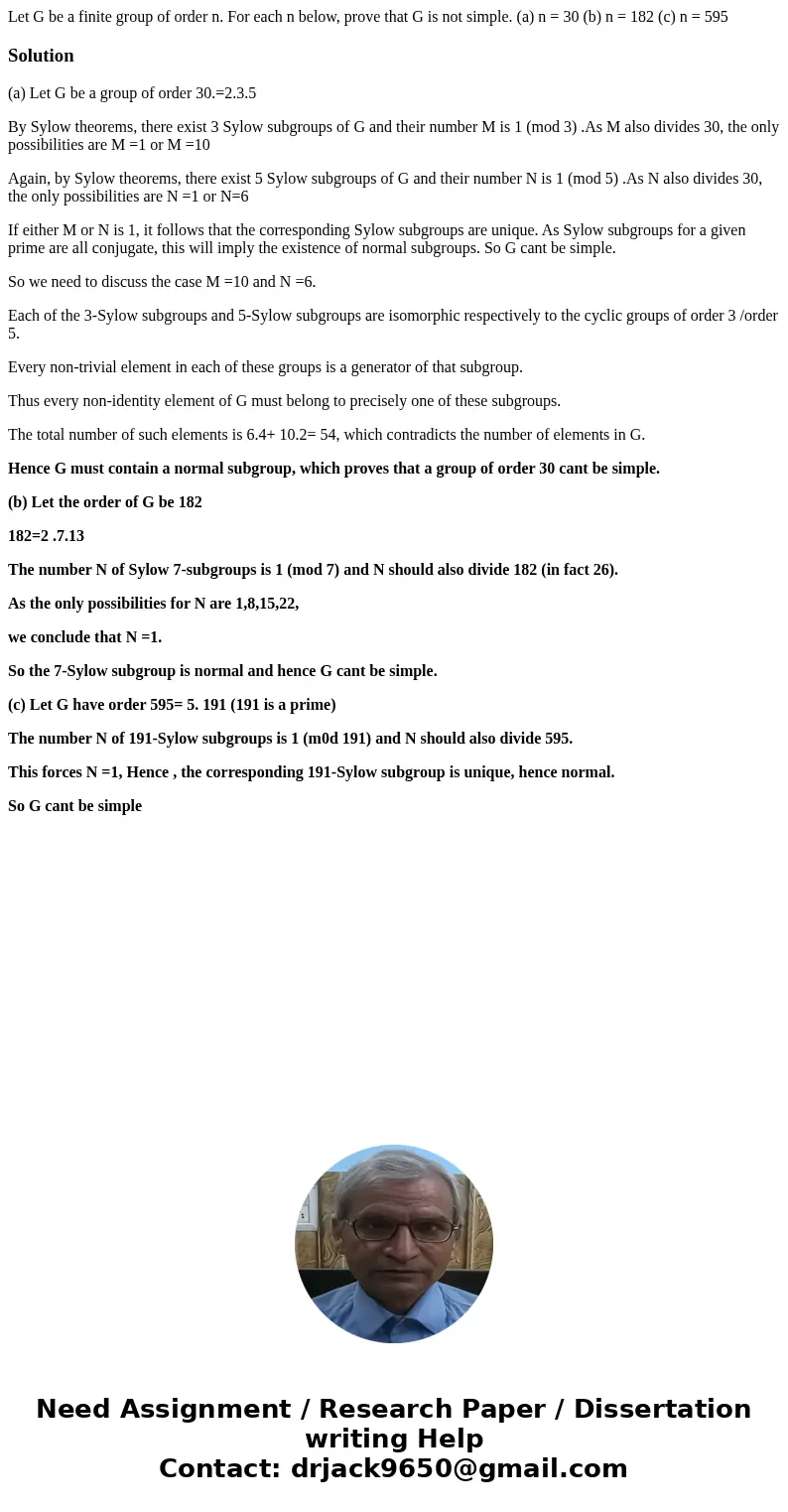Let G be a finite group of order n For each n below prove th
Solution
(a) Let G be a group of order 30.=2.3.5
By Sylow theorems, there exist 3 Sylow subgroups of G and their number M is 1 (mod 3) .As M also divides 30, the only possibilities are M =1 or M =10
Again, by Sylow theorems, there exist 5 Sylow subgroups of G and their number N is 1 (mod 5) .As N also divides 30, the only possibilities are N =1 or N=6
If either M or N is 1, it follows that the corresponding Sylow subgroups are unique. As Sylow subgroups for a given prime are all conjugate, this will imply the existence of normal subgroups. So G cant be simple.
So we need to discuss the case M =10 and N =6.
Each of the 3-Sylow subgroups and 5-Sylow subgroups are isomorphic respectively to the cyclic groups of order 3 /order 5.
Every non-trivial element in each of these groups is a generator of that subgroup.
Thus every non-identity element of G must belong to precisely one of these subgroups.
The total number of such elements is 6.4+ 10.2= 54, which contradicts the number of elements in G.
Hence G must contain a normal subgroup, which proves that a group of order 30 cant be simple.
(b) Let the order of G be 182
182=2 .7.13
The number N of Sylow 7-subgroups is 1 (mod 7) and N should also divide 182 (in fact 26).
As the only possibilities for N are 1,8,15,22,
we conclude that N =1.
So the 7-Sylow subgroup is normal and hence G cant be simple.
(c) Let G have order 595= 5. 191 (191 is a prime)
The number N of 191-Sylow subgroups is 1 (m0d 191) and N should also divide 595.
This forces N =1, Hence , the corresponding 191-Sylow subgroup is unique, hence normal.
So G cant be simple

 Homework Sourse
Homework Sourse